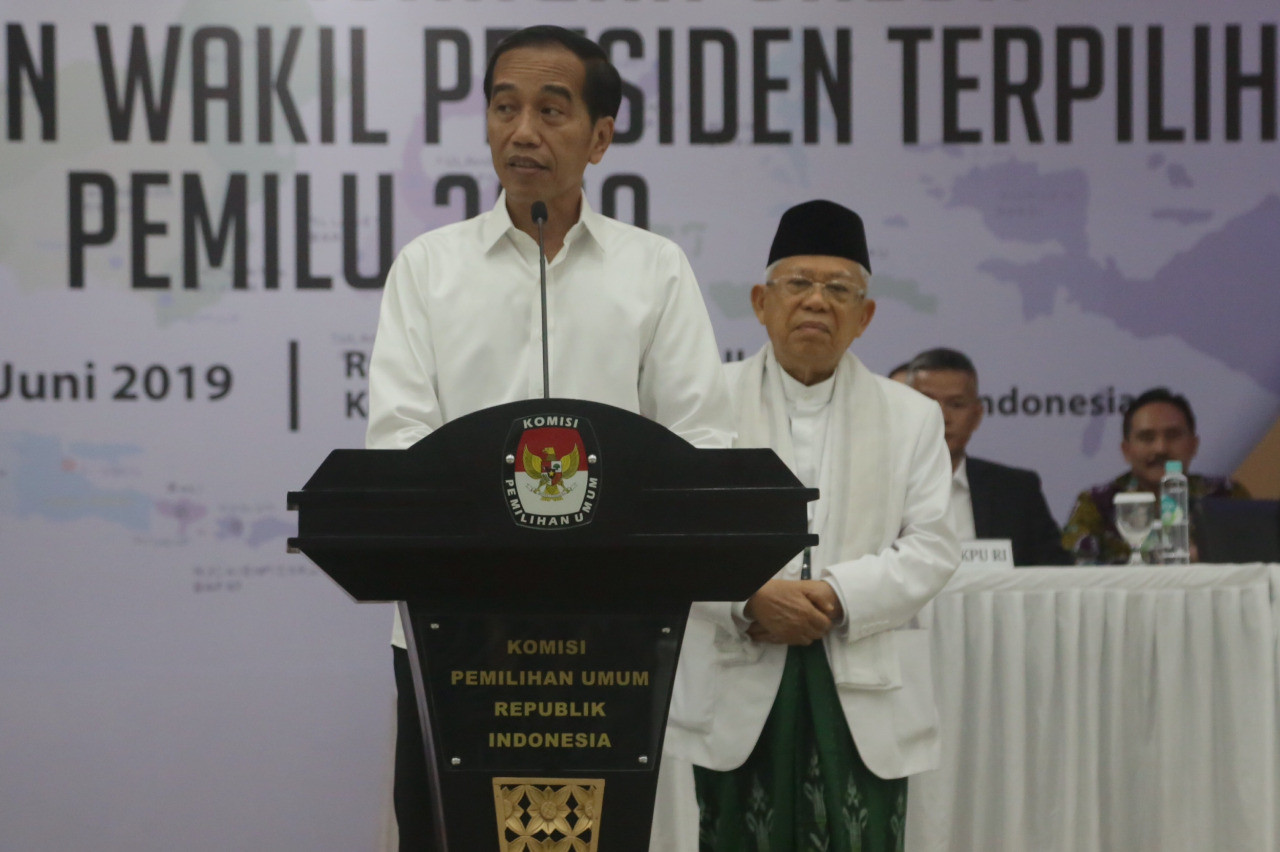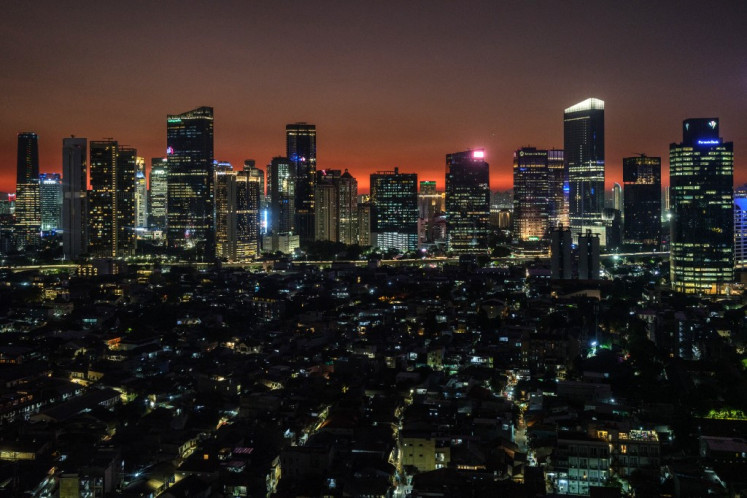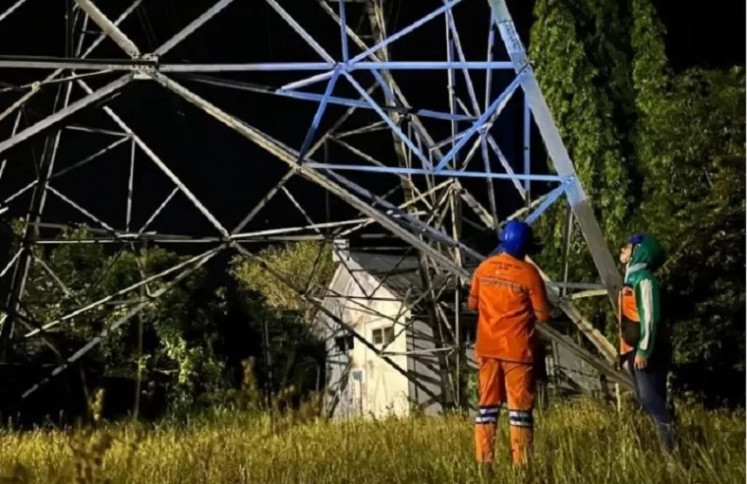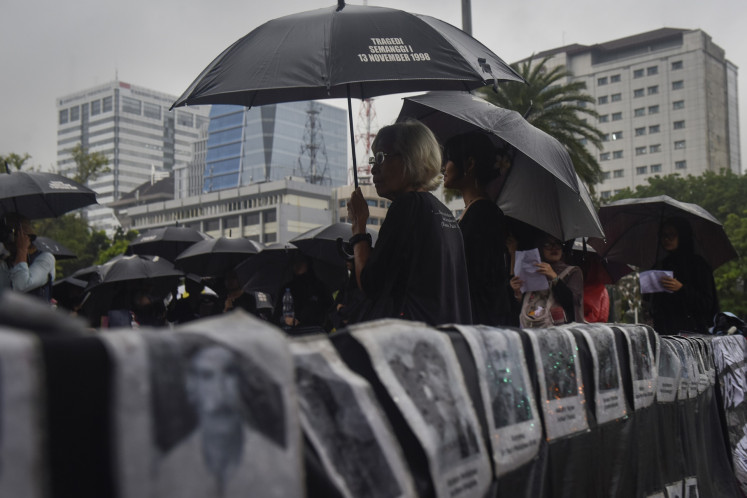Popular Reads
Top Results
Can't find what you're looking for?
View all search resultsPopular Reads
Top Results
Can't find what you're looking for?
View all search resultsInsight: Enter President Jokowi’s second term: More coherence, expertise, please
I suspect that in selecting the would-be ministers he would stress the expertise and experience of the candidates as the challenges he has to face are tremendous.
Change text size
Gift Premium Articles
to Anyone
O
n June 27, the Constitutional Court issued a unanimous verdict that the general election result was valid, and the claims of irregularities by the Prabowo Subianto camp were ungrounded. So, after a long process of a strenuous six months of campaigning and six weeks of protest rallies following the elections, the legality of the election of President Joko “Jokowi” Widodo was made official by the highest court, which in large measure was accepted by public opinion.
Now it is time for President Jokowi to prepare his new cabinet. This time there will be no hurry as in 2014, because the presidential and vice presidential inauguration will only take place on Oct. 20. By now Jokowi has been president for almost five years, and obviously he is more experienced than when he was first elected in 2014.
I suspect that in selecting the would-be ministers he would stress the expertise and experience of the candidates as the challenges he has to face are tremendous. The first challenge will be on the economic front due to the uncertainties in global and regional economic developments. Domestically, despite the achievements in the President’s first term, economic development was still uneven. If gross domestic product per capita will increase 5.5 percent annually (a normal achievement), then in 2024 it will reach US$5,000, while with 8 percent annual growth it will only reach $5,900 per capita, which was achieved by Iraq in 2018.
For overall improvements in the economy, a series of policies are needed that are coherent and with all-encompassing objectiveness: Expansion of the workforce with adequate productivity; expansive macroeconomic policies for an open trade and investment regime; regulated best practices; innovative expansion of the private sector; promoting the growing small and medium enterprises sector, improving new energy to lower gas emissions; better policies for human resources development like health care, connectivity of all school levels, and creating business-minded graduates of tertiary education; improving the social security system; and promotion of massive digital investments in all sectors of life and in all fields.
On democracy, observers have noted a number of challenges, among other things: political parties are facing an internal challenge to become less democratic; rampant corruption among the parties’ leadership and elite; high political costs due to the election system; increasing trends for intolerance at the expense of minority rights; the complexity of the bureaucracy; the overlapping functions of the State Secretariat, Cabinet Secretariat and the Law and Human Rights Ministry in legal matters.
A case in point is the implementation of the regional autonomy regulations that have yet to be synchronized; also the necessary review of the role and professionalism of the Indonesian Military (TNI) in the midst of fast changing global dynamics.
On foreign policy, there is a need to revisit some policies due to new challenges and developments regionally and globally. One critical need is a bigger role for the President to play in diplomacy. That includes his participation and presence in various international fora, which is highly important and vital. The appointment of the foreign minister in the new Cabinet will be very crucial. The foreign relations agenda needs a very able figure who has a good reputation at the regional and global level, and who is recognized as such by the diplomatic community.
In facing the new demands and challenges in the coming five years, both domestically and externally, President Jokowi would need a new body that can assist him daily on strategic matters, related to the economy, politics and other issues, such as the National Security Council. Membership of the council consists of selective Cabinet ministers and heads of some state bodies.
Another utterly important issue that needs special attention of the President is Papua with its very complex and multidimensional problems. One possible solution in sight is the establishment of a special body on Papua that is directly under the President, which has full authority with adequate means and funding to be successful.
Most of the aforementioned issues and challenges are medium and long-term in nature, and President Jokowi is expected to handle them head on throughout his second term to bring about successful results of his two-term presidency.
***
The writer is vice chair, Board of Trustees, CSIS Foundation. The article is published in the August edition of Forbes magazine.










